Harry R. Schwartz
Code writer, sometime Internet enthusiast, attractive nuisance.
Recommended Books
I find myself recommending the same books to folks over and over, so I figured I could just jot them down somewhere to save myself some time (and to ensure that I didn't forget any gems myself).
Mostly, these are the books that have influenced how I think about things! They tend toward non-fiction, since that's how that usually happens, but there are a bunch of exceptions (mostly for novels, short stories, or science fiction that I just loved enough).
These are reordered randomly every time I build the site, so don't ascribe any intention to the ordering.
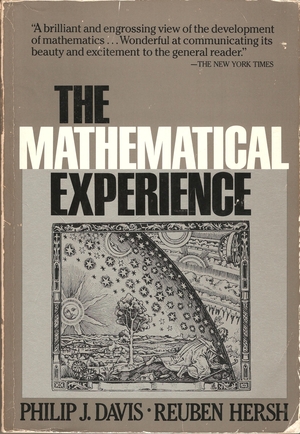
The Mathematical Experience
Philip Davis & Reuben Hersh
A history of how we’ve thought about mathematics. What’s a proof? What’s a logic? How have those concepts changed over time? What is math, anyway, and what does it mean to do it?
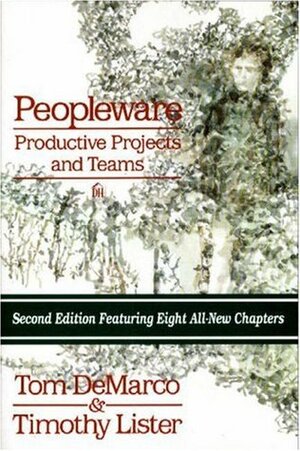
Peopleware: Productive Projects and Teams
Tom DeMarco & Tim Lister
A classic on offices and team productivity from the mid-1980s. Best known today for its research on and condemnation of the open office plan, along with other comments on constructing a productive environment, but it also covers many other aspects of team dynamics.
If you liked this, you might also enjoy Gerald Weinberg’s Psychology of Computer Programming, which I’ve referenced elsewhere.

Antigonick
Anne Carson
Anne Carson might be my favorite poet? Her original work is great (I especially liked Glass, Irony & God), but she’s also a professional classicist who’s done absolutely fabulous work translating from Greek. Her Bakkhai is amazing, as is her complete collection of the remaining fragments of Sappho’s poems, If Not, Winter.
Antigonick is a short play retelling the story of Antigone in gorgeous verse.
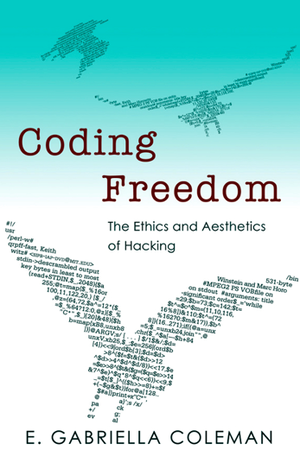
Coding Freedom
E. Gabriella Coleman
An academic sociologist embeds herself in the Debian project, studies its values, history, and traditions, and publishes an ethnography.
It’s really fascinating seeing your culture (or sub-sub-sub-culture, as the case may be) examined through a relatively objective lens.
Conveniently, Dr. Coleman hosts a PDF of her book on her site.
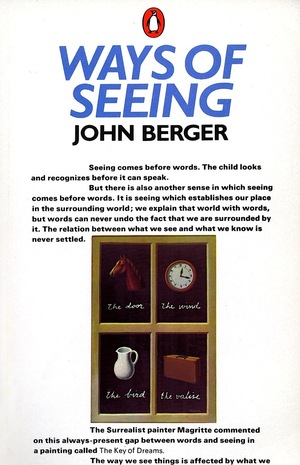
Ways of Seeing
John Berger
This was originally a short BBC series in the early 1970s, later adapted into a book. It explores the way ideology is embedded in images.
Y’know all those lovely old oil paintings that comprise the classical Western artistic canon? Who commissioned them? Why? What narratives were they trying to tell about themselves, and why should we treat what’s essentially elite propaganda as the epitome of artistic expression?
This series/book also, famously, introduced the term “male gaze” to discuss the way women are portrayed in media.
One might simplify this by saying: men act and women appear. Men look at women. Women watch themselves being looked at.
In another turn of phrase I quite liked, Berger discusses the way in which a nude isn’t simply a portrait of a naked person:
To be naked is to be oneself. To be nude is to be seen naked by others and yet not recognized for oneself.
As an aside, while the book itself is intriguingly laid out and filled with eloquent images, the binding of the standard Penguin edition is remarkably atrocious; the pages just fall out of the thing.
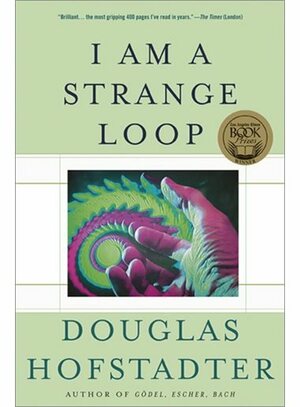
I Am a Strange Loop
Douglas Hofstadter
Hofstadter continues his explorations of consciousness, with fewer Achilles-and-the-Tortoise vignettes and more autobiographical material. That might not sound attractive if you liked GEB, but I enjoyed it.
I especially remember Hofstadter’s depiction of his relationship with his wife as a distributed system, in which some of his “processes” ran on her “hardware” and vice versa. After she died, he kept finding her processes still running in his mind; he saw things as she would have seen them, or remembered things for her. And he noticed that many of his processes, which had been running on her, weren’t being executed any more. Some people in my life would probably roll their eyes at me for resonating so strongly with that description, but for me it’s a perfect metaphor for a certain kind of grief.
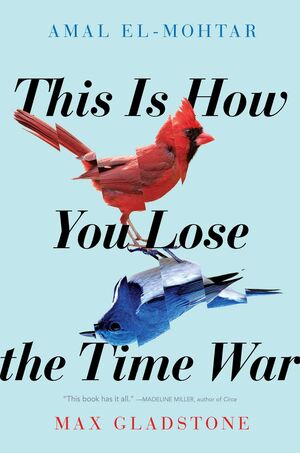
This Is How You Lose the Time War
Amal El-Mohtar & Max Gladstone
I’m a sucker for a good epistolary novel, and this is one of my favorites. Two agents of rival time-spanning entities attempt to thwart each other across time and space, leaving messages at first taunting but increasingly intimate as they fall in love. Short and sweet, meriting a few re-reads.
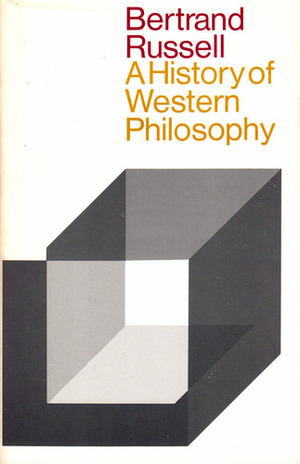
History of Western Philosophy
Bertrand Russell
Not always perfectly accurate or rigorous, and certainly not in vogue any more, but by far the most engaging narrative history of philosophy I’ve read. I’ve also got a huge intellectual crush on Bertrand Russell, though; see also his graphic novel biography Logicomix.
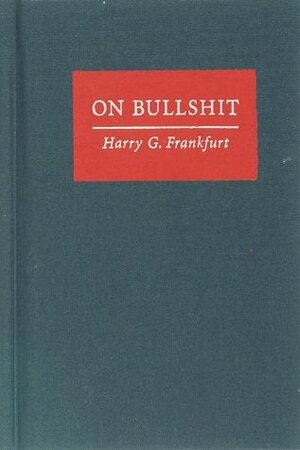
On Bullshit
Harry Frankfurt
When a speaker recognizes the facts and reports them accurately, they’re telling the truth. When they recognize what’s true but deliberately obfuscate it, they’re lying. But when they ignore the truth altogether and says whatever’s expedient, well, that’s bullshitting.
Frankfurt, a philosopher at Princeton, wrote this little essay to explore the current prevalence of bullshit (and, I suspect, to gleefully deploy the word as many times as possible in an academic publication).

VALIS
Philip K. Dick
You’ve probably run into Philip K. Dick before! Maybe you’ve watched a movie based on one of his books, like Blade Runner or Minority Report or Total Recall, or read The Man in the High Castle or Ubik? He’s kinda weird, right?
VALIS is where PKD turns the weird up to 11. It’s an absolute trip of a novel: it’s got alien satellites, mind-control beams, Gnosticism, schizophrenia, Nixon, Wagner, and Robert Anton Wilson. A genuine masterpiece of the High Weirdness genre, recommended for Subgenii everywhere.
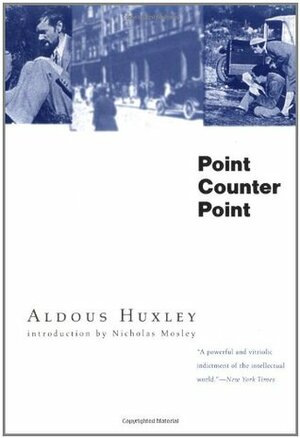
Point Counter Point
Aldous Huxley
A novel composed of the interlocking stories of several unhappy British artists and intellectuals in the 1920s.
Many years after reading this book I ran across Erik Hoel’s essay, “Fiction in the Age of Screens,” which observes that the novel is almost unique as a medium in that it gives us a direct view into a character’s inner life. What are they thinking? How are they feeling? What is it like to be a character? Novels let us peer directly inside someone’s mind in a way that even the best television or theater can’t; we can directly experience Raskolnikov’s thoughts, but we can only observe how Tony Soprano acts. That’s exactly the sort of thing this novel exemplified for me when I first read it.
Some of Huxley’s novels, including this one, have that quality of making me feel as if I’m in direct communion with another mind, and I just adore that.
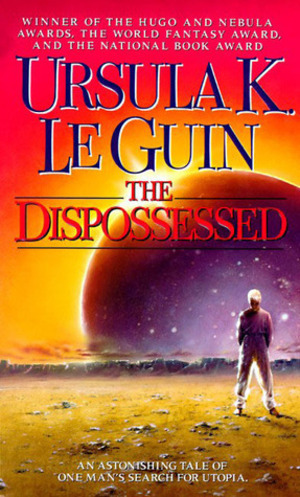
The Dispossessed: An Ambiguous Utopia
Ursula K. Le Guin
Le Guin’s analysis of the benefits and pitfalls of anarchism, wrapped up as a thoughtful and entertaining sci-fi novel.
All of Le Guin’s work that I’ve read is terrific. I especially also like her take on gender in The Left Hand of Darkness.
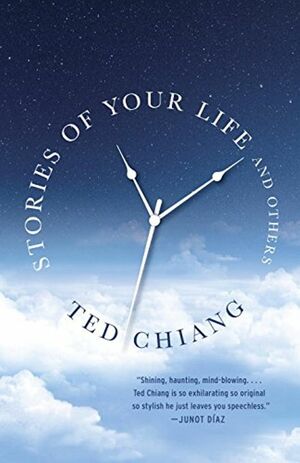
Stories of Your Life and Others
Ted Chiang
Just a collection of great, thoughtful sci-fi stories. The titular one was made into the film Arrival. Reminds me a bit of a modern Borges, though Chiang may be slightly less omnivorous.
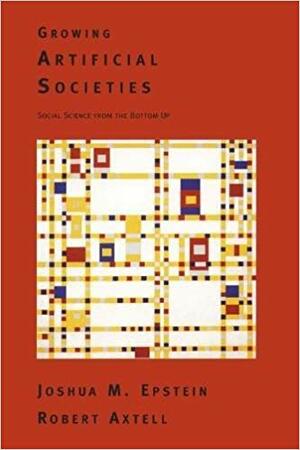
Growing Artificial Societies
Joshua Epstein & Robert Axtell
Tactics for using agent-based simulation to model large-scale emergent phenomena. If you’re interested in how simple rules can interact to generate unexpected macro behavior, this is the book for you.
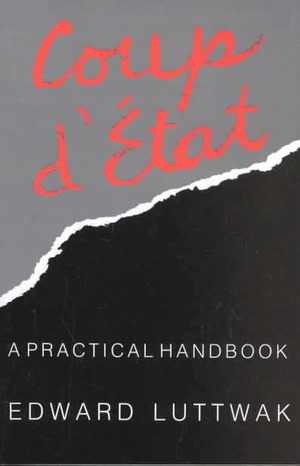
Coup d'État: A Practical Handbook
Edward N. Luttwak
I’m unlikely to throw a putsch, but I thought this book—which does indeed purport to be a practical guide to seizing control of a government from the inside—insightfully illuminates how power is “really” deployed within a regime. It details how to identify weak points, how to persuade allies to help infiltrate organizations, foreign relations considerations, and so on, with numerous practical examples from the mid-20th century.
Every now and then you’ll hear someone, usually one of the “Dark Enlightenment” edgelord ding-a-lings, claim that under a monarchy the ruler has absolute power to order society. This book thoroughly demonstrates that no one, especially not the person at the top of the pyramid, has anything like the kind of autonomy we think they do; they’re almost completely beholden to their underlings for support. CGP Grey’s “Rules for Rulers” video provides a nice summary of this idea, too.
My copy of Coup d’Etat was published in 1968, so its media analysis is a bit out of date (lots of references to seizing and neutralizing radio stations, for example), but I hear Luttwak updated it recently to include some discussion of modern communications technologies.
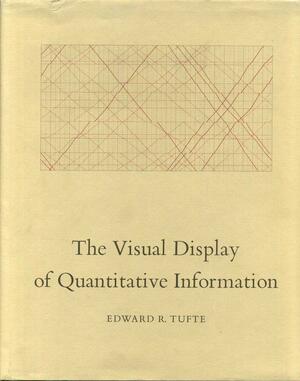
Visual Display of Quantitative Information
Edward Tufte
The classic text on graphically representing data. If you graph things for an audience, read this book.
Enough of Tufte’s advice on minimizing obfuscating “chartjunk” has been adopted that understanding the contents of this book doesn’t curse the reader quite as thoroughly as The Design of Everyday Things does, but expect to be frustrated with diagrams in a way that you probably weren’t before.
As another suggestion for improving your graphic design skills, I got a lot out of reading Ellen Lupton’s Thinking with Type. Of course that’s more about typography than representing data, but if you like one you’ll probably like the other!
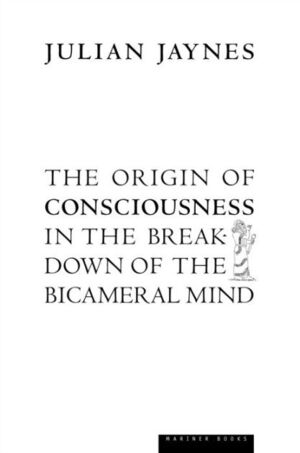
The Origin of Consciousness in the Breakdown of the Bicameral Mind
Julian Jaynes
The thesis of this book is absolutely bonkers and I don’t actually endorse it, but it’s so off-the-wall and intriguingly argued that I have to recommend the book anyway.
The notion is: y’know how in ancient literature gods and spirits and stuff are always appearing and telling people what to do (“hey, Achilles, it’s me, Athena: go beat up Hector!”), and the literature also never really says much about what those people are actually thinking and feeling?
We moderns just assume the story-tellers are being poetic by bringing in the gods to represent characters’ inner lives… but what if they were faithfully describing actual states of mind? What if, until relatively recently, the inner human experience of thought and consciousness was actually hallucinating deities who told us what to do? What would that have felt like? How would we know that wasn’t the case?
There are a ton of issues with this book and its argument, but it’s fascinating to think about in terms of agent-based models of consciousness. And it inspired Neal Stephenson’s Snow Crash, too!

Jonathan Strange & Mr Norrell
Susanna Clarke
Susanna Clarke conjures up a Napoleonic England in which Faerie magic, once ubiquitous but now mythical, has reappeared. Good characters, great dialogue, and delightfully evocative descriptions.
If you enjoy this novel, be sure to read The Ladies of Grace Adieu, her collection of short stories set in the same universe.

The Xenofeminist Manifesto: A Politics for Alienation
Laboria Cuboniks
The three tenets of xenofeminism are:
- technomaterialism: Information’s not ethereal, it’s built on physical infrastructure and devices which are built and owned and subject to the usual problems of capitalism,
- gender abolitionism: Get rid of the gender binary by stripping it of social significance such that it’s no more important than e.g. eye color (less “eradication of gendered traits” than “gender post-scarcity”), and
- anti-naturalism: “Nothing is so sacred that it cannot be reengineered to widen our aperture of freedom.”
Pretty good stuff, I think. This book’s a manifesto, so it’s more of a statement of the issues than an argument for them, but if you’re already basically convinced on all the main points it’s a great articulation of them.
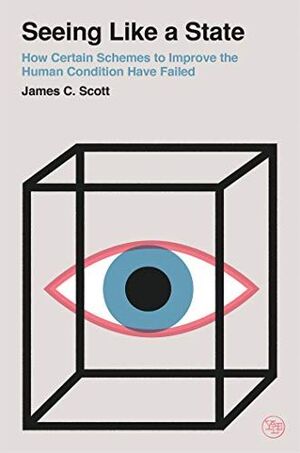
Seeing Like a State: How Certain Schemes to Improve the Human Condition Have Failed
James C. Scott
I put off reading this for a while, since the title (and some of the people I’d heard recommend it) made me worry that it might be a ponderous libertarian tract on the merits of free markets, but it’s just the opposite! Scott’s a staunch anarchist, so, while he’s skeptical of large-scale government social programs, he absolutely doesn’t endorse free-market capitalism as the solution, either.
This is a book about how we construct abstractions over complex data to make it tractable, and how that process of abstracting changes the world. The map simplifies the territory, but trouble arises when we treat the map as true and try to modify the territory to conform to it.
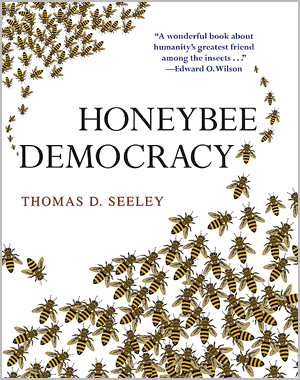
Honeybee Democracy
Thomas Seeley
Just fun! This book is about how swarms of bees collectively decide to locate their hives. In other works, it’s about implementing distributed consensus algorithms in the medium of bees. It’s also where I learned how waggle dancing works!
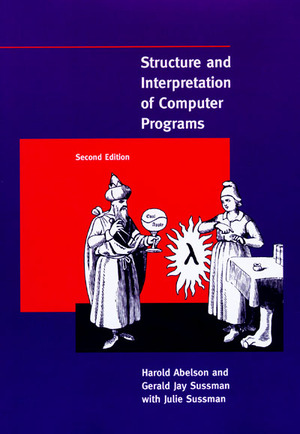
Structure and Interpretation of Computer Programs
Hal Abelson & Gerald Jay Sussman
An introduction to programming. That’s programming as a collection of tools of thought, not just IDEs and syntax. Starts by adding numbers together, ends by implementing a compiler for a register machine.
I believe it’s impossible to read this book without feeling compelled to implement an interpreter (or three).
This was also the textbook for 6.001, MIT’s freshman CS class, until they sold out to the man by switching their curriculum from Scheme to Python back in 2008.
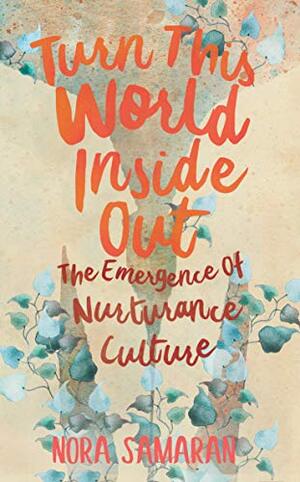
Turn This World Inside Out: The Emergence of Nurturance Culture
Nora Samaran
There’s a lot of terrific insight in here! I found it particularly useful as an introduction to attachment styles, which I hadn’t previously encountered and which provide a handy framework for thinking about relationship dynamics.
One of the key essays, The Opposite of Rape Culture is Nurturance Culture, is also available online.

Island
Aldous Huxley
I’m not including Brave New World in this list, since you’ve probably already read it, but Island is Huxley’s what-if-we-went-the-other-way Utopian sequel. Utopias are always a little trite, since they tend to gloss over a lot of problems, but I liked this one.

Capitalist Realism: Is There No Alternative?
Mark Fisher
Mark Fisher was interested in how the triumph of neoliberal capitalism in the 1980s, along with the collapse of the USSR, has stunted our collective imagination and amputated our ability to conceive of a different kind of society, summed up by Fredric Jameson’s observation that “it’s easier to imagine the end of the world than the end of capitalism.” He explores hauntology, a collection of ideas that suggests that “the future has been canceled” and we’re trapped in a sort of nostalgic loop (e.g. media’s fascination with franchises and sequels).
If you’re curious about critical theory, or about some of the theoretical underpinnings of modern leftist politics, this is a short and fairly readable place to start. If you haven’t encountered these ideas before, though, be aware that the experience can be terribly depressing. Fisher later explored some ideas for escaping this conceptual dead-end with the deliberatively provocatively named research project of acid communism.

How to Take Smart Notes
Sönke Ahrens
Most “productivity literature” is fluff, with ten pages of insights buried in 300 pages of anecdotes. How to Take Smart Notes isn’t anything like that.
It’s an argument for maintaining a curated personal knowledge database of your notes (a “zettelkasten”) and using that to drive your writing, letting clusters and topics emerge organically from it. It’s also full of useful and practical tactics for reading better, taking more useful notes, and actually using those notes to compile and write better articles.

The Unix-Haters Handbook
Simson Garfinkel & Daniel Weise & Steven Strass
A lightly edited collection of early 1990s messages to the UNIX-HATERS mailing list by academics and engineers who were forced to switch to Unix from dramatically more powerful and thoughtfully designed systems. A reminder that technology doesn’t always move forward.
I frequently think back to a thread in which a new UNIX user asks how to
recover files deleted with rm and is utterly flabbergasted to learn that
in the Year of Our Lord 1992 the default UNIX file system still doesn’t
implement universal version control.
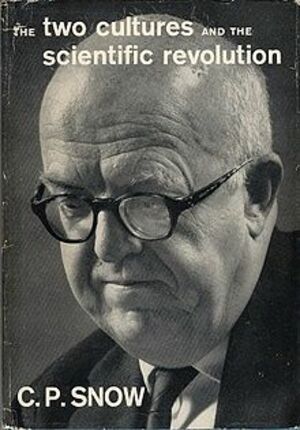
The Two Cultures
C.P. Snow
Snow discusses the tension between the intellectual cultures of the sciences and the humanities, arguing that the socially dominant humanities should be more open to engage with scientific and technical academic culture. Still a useful dichotomy today, though the prescription might be reversed.
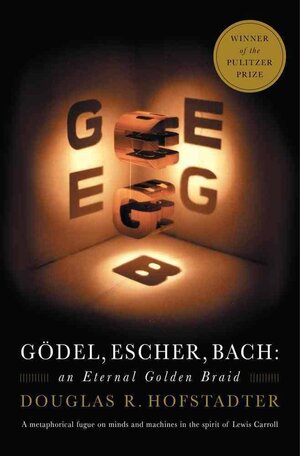
Gödel, Escher, Bach: An Eternal Golden Braid
Douglas Hofstadter
Inasmuch as this book has a central question, it’s something like: how can minds arise from matter?
Don’t be fooled by the fact that it’s a doorstop; the writing’s light and playful, and the material’s fascinating, so it’s not nearly as hard to work through as it looks.
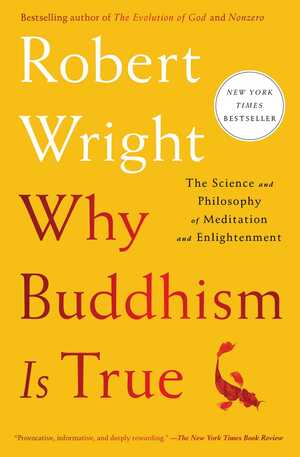
Why Buddhism is True: The Science and Philosophy of Meditation and Enlightenment
Robert Wright
Not the title I’d have chosen, but a terrific book. Wright reconciles evolutionary psychology with Buddhism and contemporary research on meditation. Learn (some of) the reasons you’re an anxious mess so often!
A nice follow-up read, if you enjoy this one, might be Robert Kurzban’s Why Everyone (Else) Is a Hypocrite, which covers similar material from a slightly different perspective.
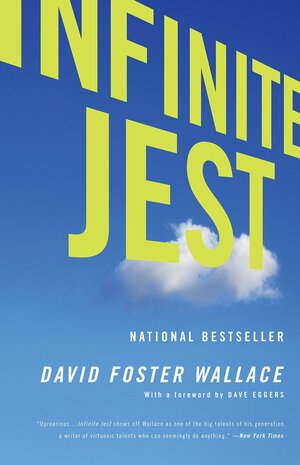
Infinite Jest
David Foster Wallace
Oh my goodness I know how pretentious and dude-bro-y loving this tome of a novel is supposed to be, and I know DFW did some not-great stuff, but I still just can’t help adoring this book.
I noted under Point Counter Point that novels are said to be able to give us a more direct connection to another mind that any other medium, and that capacity is fully deployed in Infinite Jest. The writing is tragic and funny and deeply human and just gives me all the feels.
Partly that’s because, I maintain, the novel is genuinely great, but partly it’s because I encountered it at the right time in my life. I’d just graduated from college into the Great Recession, work was scarce, I felt trapped living in the middle of nowhere, and I’d gotten cynical and nihilistic and more or less given up on making anything of my life. Maybe I wasn’t all the way to 4chan levels of disaffection, but I probably wasn’t that far off.
And Wallace’s work (and a few other things) was exactly the perspective I needed. It also coincided with getting into graduate school, so it kinda marked a transition between two major phases of my life, and I still associate it with that.
Anyway, that’s probably not your situation; it seems like Kids Today get more guidance about emotional and mental health than I did. But, in case you’re feeling crushed by an internalized belief that genuinely caring about people is creepy or shameful, or you’re feeling starved for meaning, or feeling depressed and trapped in your own head, maybe you’ll find this novel helpful, too.
I’d point out in hindsight that therapy can often help, too, of course, but I’m sure I would’ve ignored that advice, so maybe suggesting some good books is the best I can do.
I’d also recommend DFW’s well-known graduation speech, This is Water.
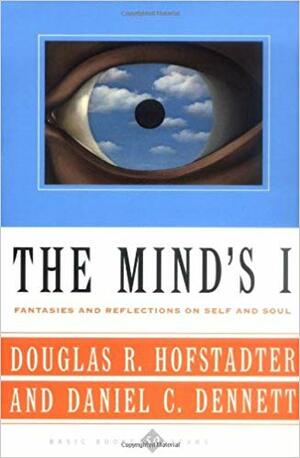
The Mind's I
Douglas Hofstadter & Daniel Dennett
A compilation of essays and short stories on minds, brains, and consciousness.
For a sample of the sort of ideas to expect, try Thomas Nagel’s What Is it Like to Be a Bat?.
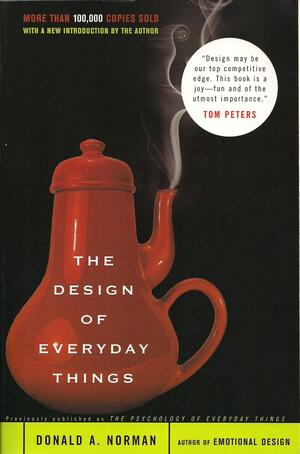
The Design of Everyday Things
Don Norman
Investigates the concept of affordances, the cues that designers build to implicitly inform us how to interact with objects.
For example, it memorably discusses door handles: a horizontal bar across a door affords pushing (that is, it’s natural for us to push it), while a vertical handle on one side affords pulling. User frustration arises when, for example, a handle that affords pulling is paired with a sign reading “PUSH.”
In other words, reading this book is a curse which makes the reader forever acutely aware of the design problems that surround them and the trivial solutions that could have obviated those problems. On the other hand, I’ve found that it transforms visits to IKEA or Muji into almost religious experiences.
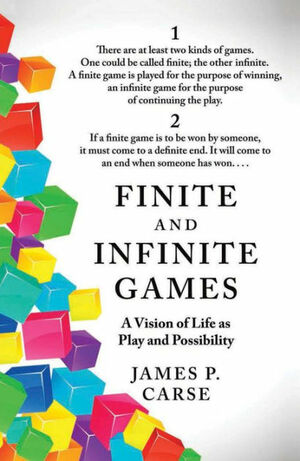
Finite and Infinite Games
James Carse
The goal of finite games is to win, but the goal of infinite games is to continue play. Anything can be framed in terms of either a finite or infinite game: politics, relationships, careers, you name it. Structured as a series of successive observations building to conclusions (kinda like the Tractatus).
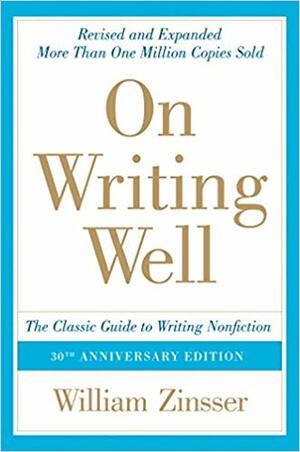
On Writing Well
William Zinsser
Everyone loves Strunk & White, and I’ll not say anything against it, but On Writing Well is my favorite book on the topic. Zinsser’s an expert, and the book is full of clear examples illustrating his points.
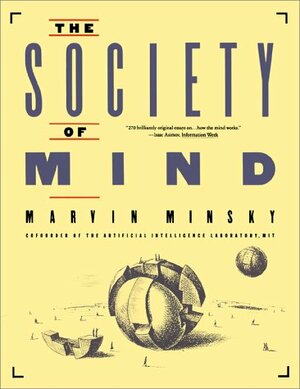
The Society of Mind
Marvin Minsky
The father of AI presents a modular, agent-based model of the mind. Minsky’s lectures for the MIT course of the same name are also available through OpenCourseWare.
Plus, a friend of mine hosts a Web-friendly copy for free.

The Inheritance of Rome
Chris Wickham
I’d pretty much held to the default narrative that after Rome fell apart in the 400s, Europe just kinda went into stasis for a millennium or so. That narrative paints the whole era as somewhere between a Dungeons & Dragons campaign and a Monty Python sketch.
That’s mostly baloney, of course. Wickham reconstructs post-Roman European trade networks and demonstrates that, while certainly less centralized and materially wealthy, a lot of the same basic economic and political structures that Rome built persisted until the Renaissance.
The book also digs into the cast of cultures that dominated the period (the Carolingians, the Ottonians, the Goths, the Byzantines, and so on). It makes one think of the Middle Ages as a “place” of its own, and not just a lengthy time-out between more important eras.

Annals of the Former World
John McPhee
McPhee journeys across the country with a series of geologists, exploring the history of the continent and documenting the lives and characters of the folks that investigate it.
John McPhee’s one of the greatest stylists alive, for my money, and willing to deeply engage with his source material, so this is both a terrific primer on basic geology (written at a time when plate tectonics wasn’t yet fully accepted, though) and a great autobiographical travelogue.
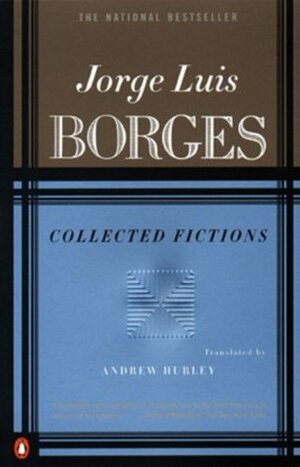
Collected Fictions
Jorge Luis Borges
I love Borges! He’s got a terrific imagination and his stories draw from a wide range of literary sources. And correspondingly, once you’ve read him, you’ll notice references to him all over the place, at least in the oddball corner of the literary swimming pool that I like to splash around in. A combinatorialist might reference The Library of Babel, a semiotician On Exactitude in Science, a deconstructionist Pierre Menard, Author of the Quixote, or a cognitive scientist, well, pretty much the whole canon. He’s a delight.
I haven’t read any other translations, except of a couple specific stories, but Andrew Hurley’s is enjoyable.
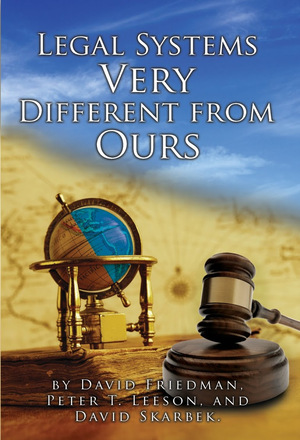
Legal Systems Very Different from Ours
David D. Friedman
Exactly what the title promises: a survey of how numerous diverse societies codify law and adjudicate legal disputes. The focus is still primarily Western, but there’s a wide range of different legal systems in here, including saga-era Iceland, the Amish, Somalia, Periclean Athens, the Comanche, and 18th-century pirates.
Intriguing for its own sake, but I’ve suggested this to a few fantasy writers and table-top RPG campaign designers who’ve found it useful, too.
An early draft of the book is available for free online, too.
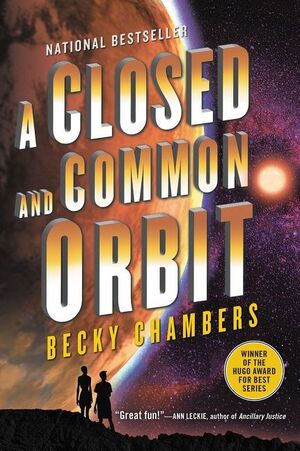
A Closed and Common Orbit
Becky Chambers
The second in the Wayfarers series. All the books in that series are great—start with A Long Way to a Small, Angry Planet—but I especially love this one.
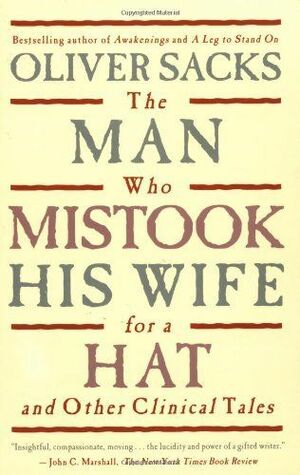
The Man Who Mistook His Wife For A Hat
Oliver Sacks
A collection of neurological case studies. Dispelled any lingering hints of mind/body dualism that had been floating around in my head.
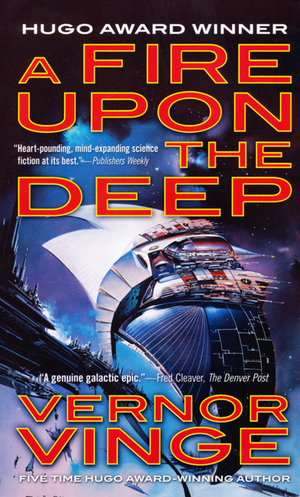
A Fire Upon the Deep
Verner Vinge
A fun and well-written sci-fi novel. Includes a few interesting perspectives on augmented and distributed intelligence.
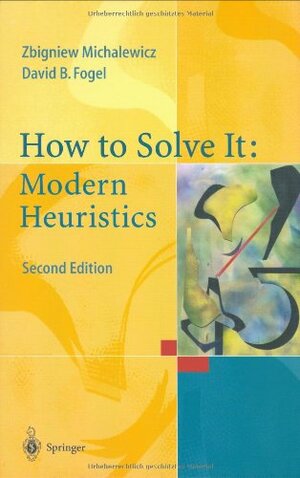
How To Solve It: Modern Heuristics
Zbigniew Michalewicz & David B. Fogel
Many computer science problems don’t have exact solutions that can be calculated quickly. That includes NP-hard problems, like the traveling salesman problem or Boolean satisfiability, but there are also plenty of terribly complex polynomial problems.
The recent revival of interest in machine learning has seemingly led a lot
of folks to think about these problems as use cases for neural nets. Just
fire up TensorFlow or PyTorch, train the model on a data set, and see
what comes out.
And sometimes that’s a perfectly good solution, but if it’s the only tool in your toolbox, well, you’re missing out on some fascinating and often much more effective strategies. We might use simulated annealing, or evolutionary algorithms, or constraint solvers, or fuzzy logic, or agent-based models. This book provides a nice tour of those methods (along with a chapter on, yes, neural nets).
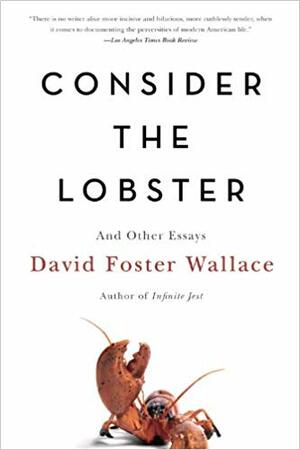
Consider the Lobster
David Foster Wallace
Maybe some semi-trustworthy character raved to you about this David Foster Wallace guy, but you’re not willing to commit to Infinite Jest without some idea of what you’d be getting into. Or maybe you just really like a great essay? Either way, this is a fun read.
See also DFW’s other collection of short articles, A Supposedly Fun Thing I’ll Never Do Again.
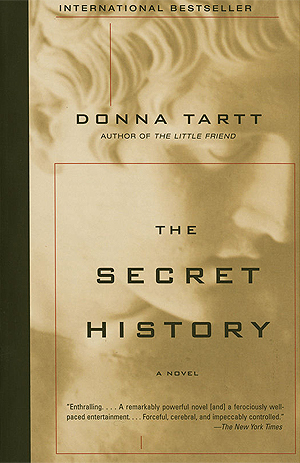
The Secret History
Donna Tartt
I just love Tartt’s sentences, y’know? Though reading a novel about the personal flaws of a group of insecure and narcissistic classics students at a small liberal arts college in the northeast felt a bit like I was being personally attacked.
I’d also suggest Tartt’s second novel, The Goldfinch.
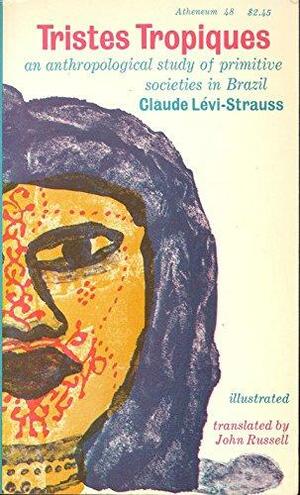
Tristes Tropiques
Claude Lévi-Strauss
Tristes Tropiques is, in part, an entertaining travelogue in which a French anthropologist journeys into inland Brazil.
But Lévi-Strauss was also a key figure in structuralism, so he was interested in divining the bigger forces that shape how societies are constructed. He uses his travels as a framing device to draw comparisons with other societies across the world and tries to identify universal patterns.
That’s an approach with some weaknesses—notably, the naïve version of it treats the observer as neutral and objective, which is baloney—but it’s a decent place to start if you want to think about social structures in a more systematic way.
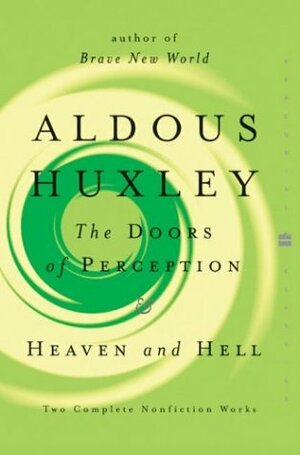
The Doors of Perception
Aldous Huxley
A brilliantly articulate and thoughtful observer of the human experience tries mescaline for the first time in the 1950s and records the experience. Personally, I received a lot of DARE-style anti-drug nonsense growing up that didn’t really distinguish, say, mushrooms from meth, so Huxley’s description did a lot to turn around my thinking on psychedelics.
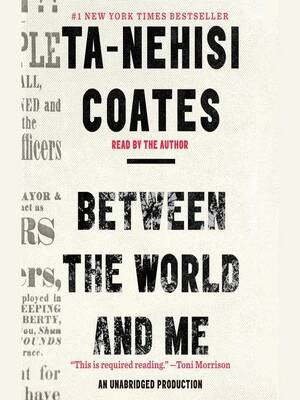
Between the World and Me
Ta-Nehisi Coates
I’m a white person who grew up on a farm in Amish Country, so I’ve got some mile-wide blind spots. Coates clarified the ones I knew about and pointed out a bunch more that I hadn’t realized I had. Highly recommended reading for folks with a similar background. Or anyone else, for that matter.
In the same vein, Ibram X. Kendi’s How to Be an Antiracist was similarly illuminating for me!
To contrast them: I felt that Coates helped me to better empathize with the Black experience, while Kendi provided a bit more of a theoretical framework for racism and some more practical tips for countering it.